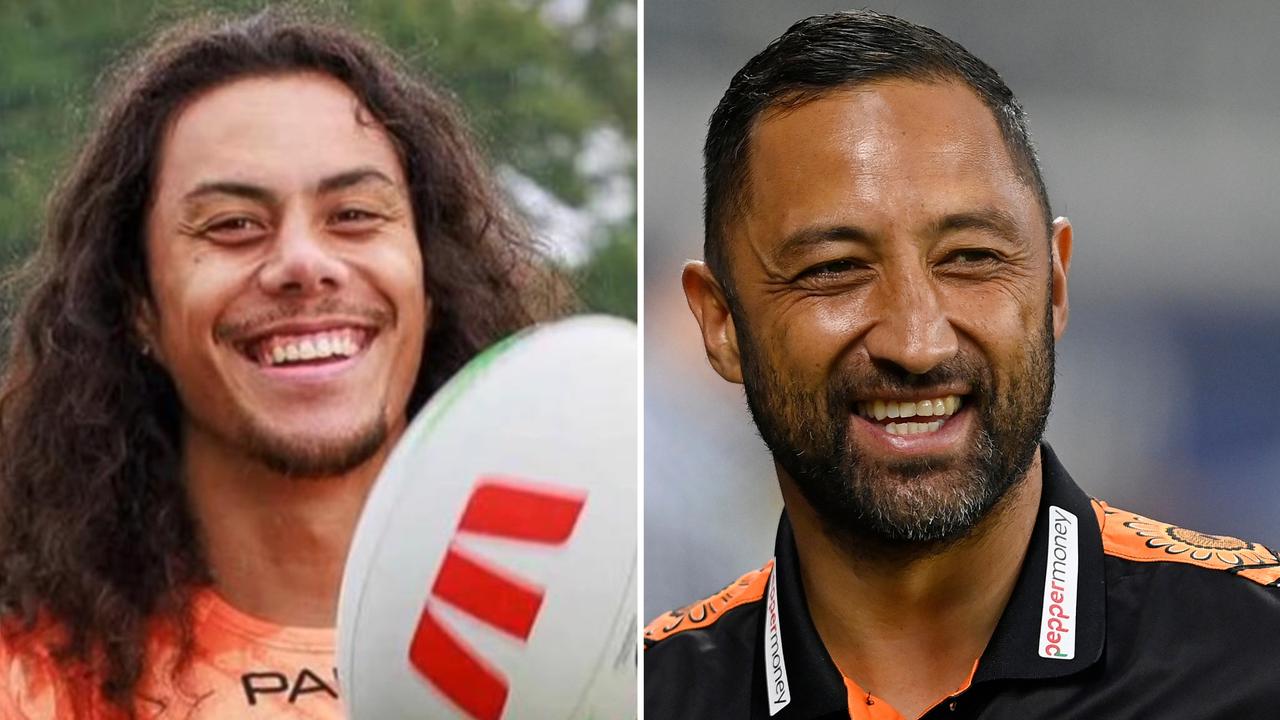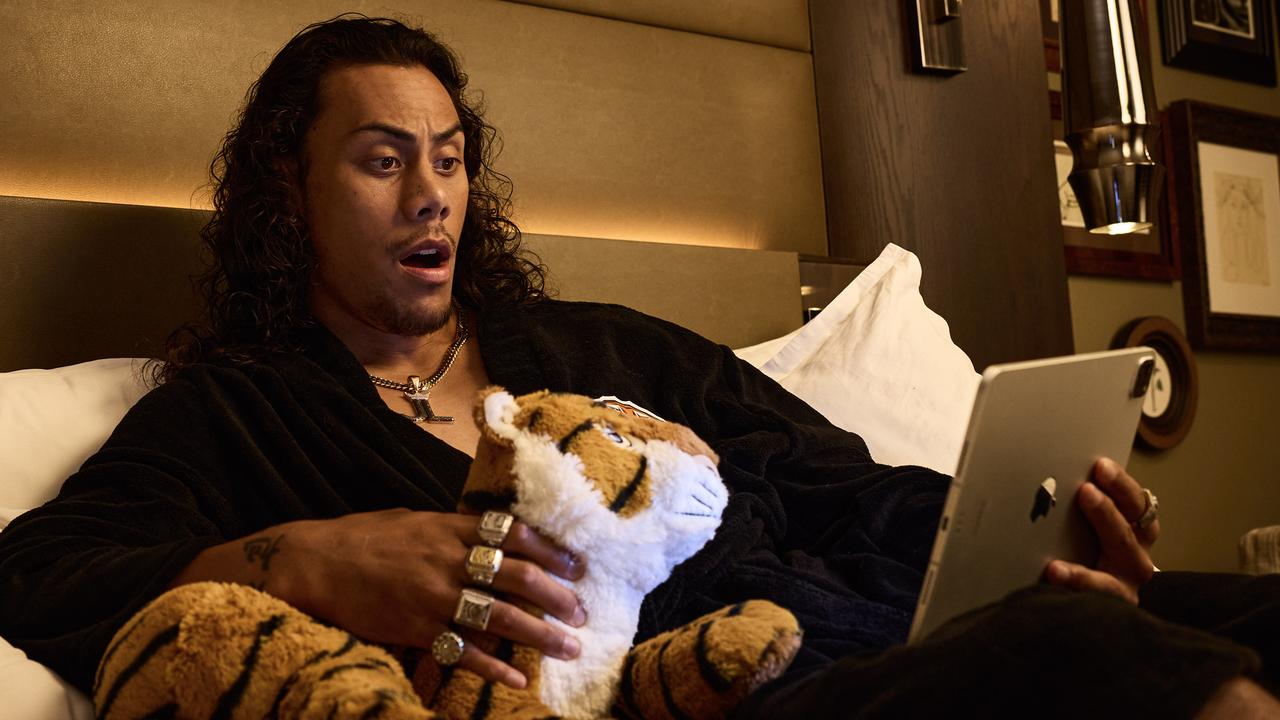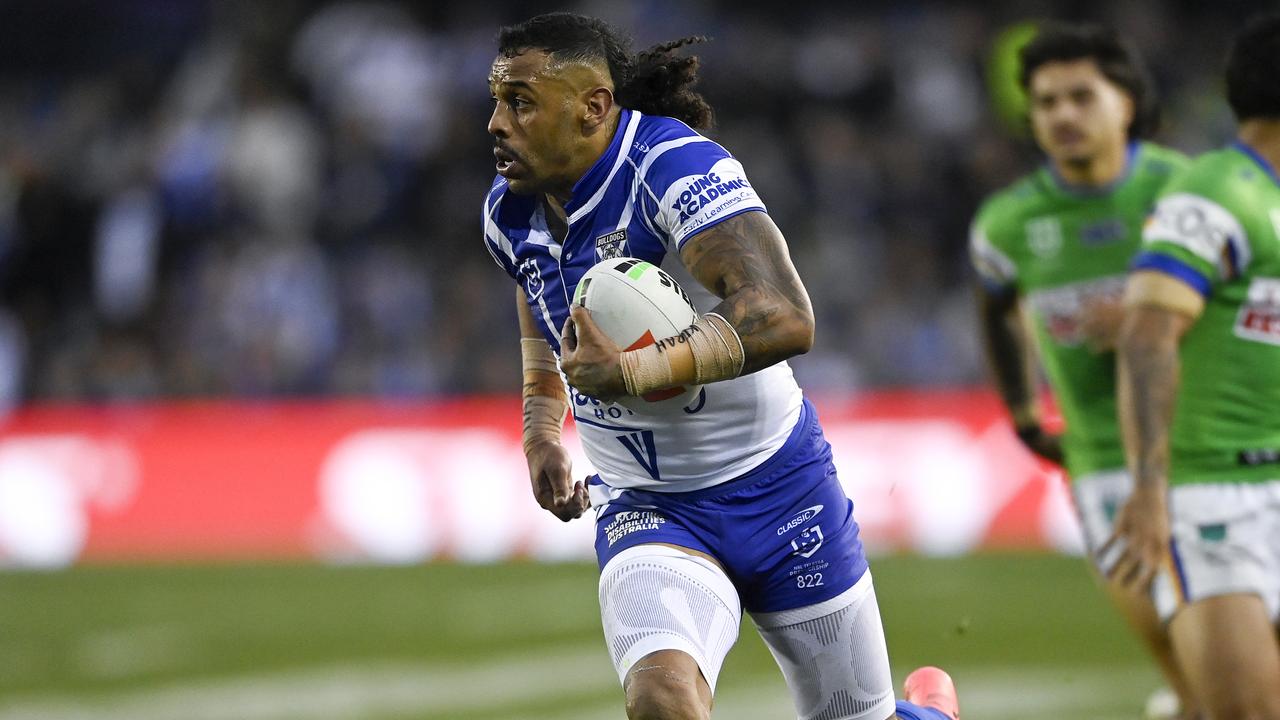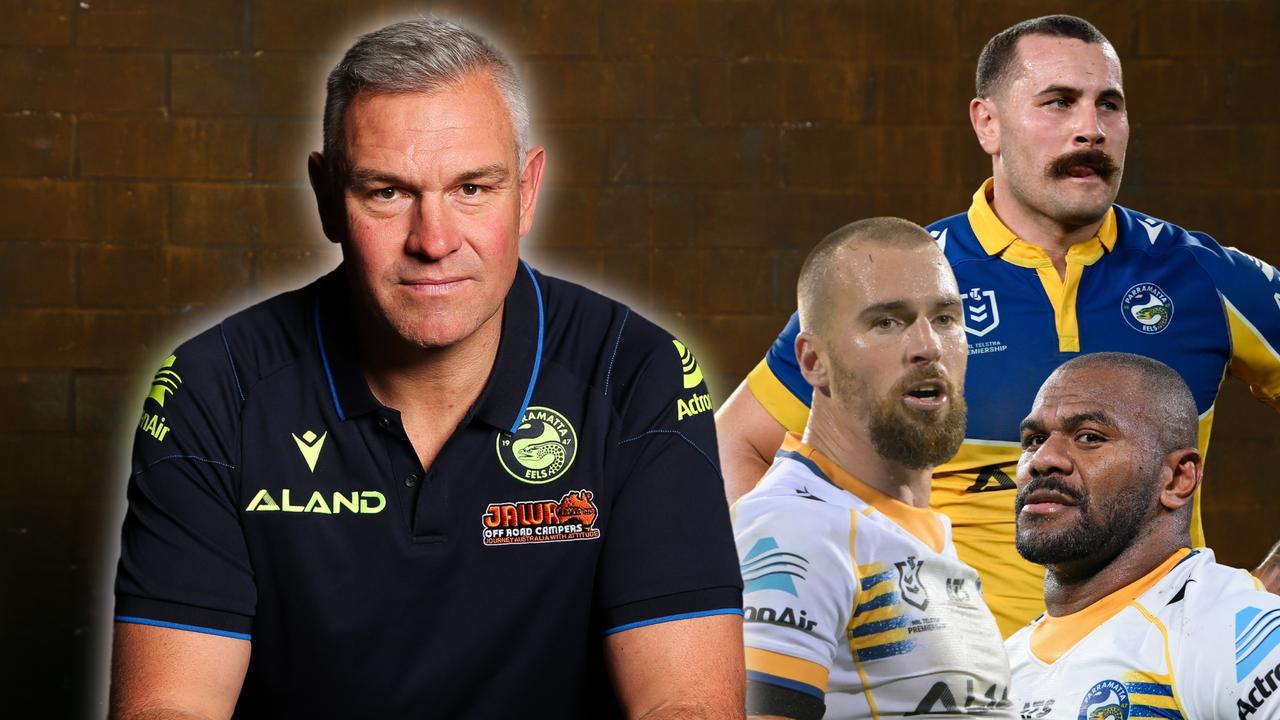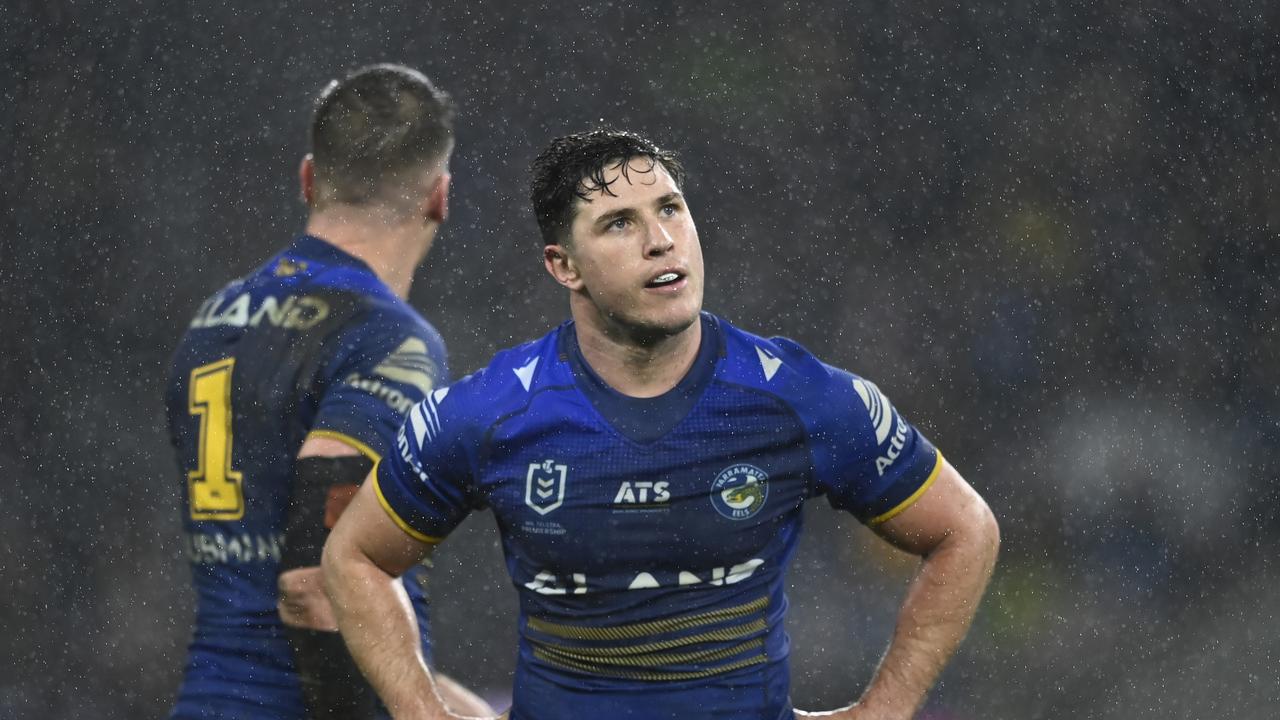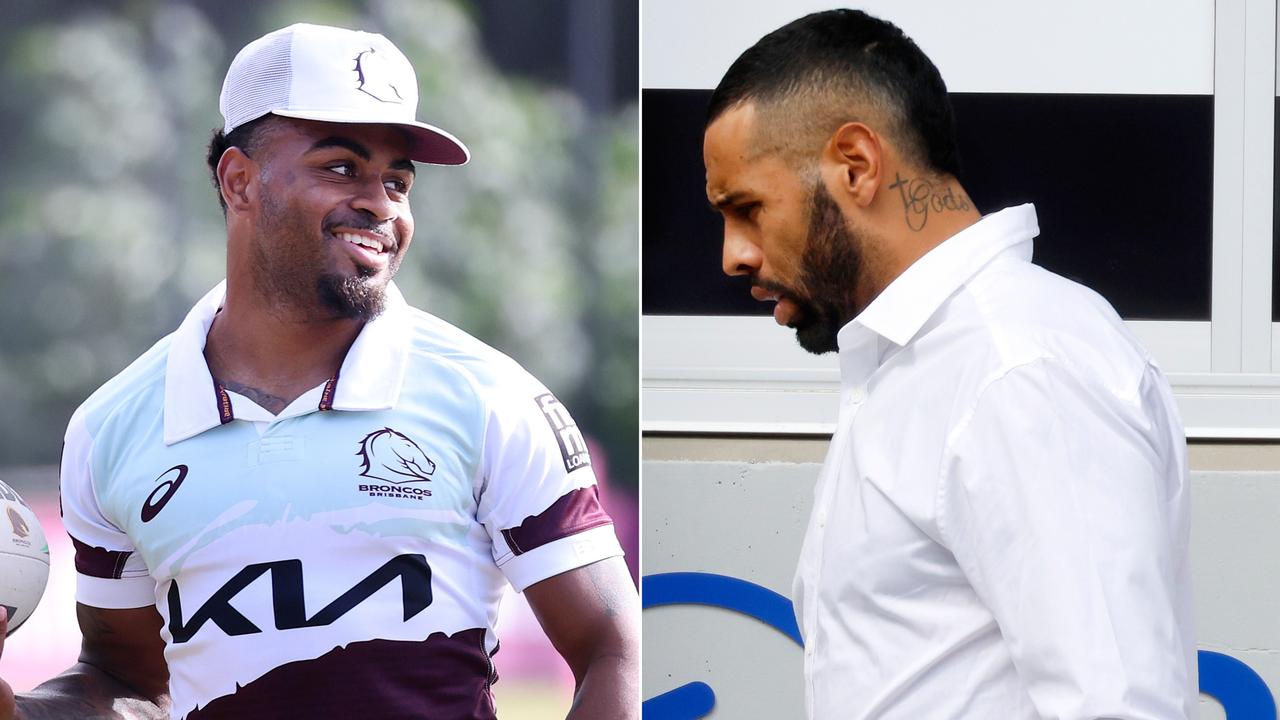NRL 2022: Paul Kent on referee howlers, high tackle crackdown and slow death of rugby league
Bob Dylan once wrote about the death of boxer Davey Moore, and in another time he may have written about the slow death of rugby league, writes Paul Kent.
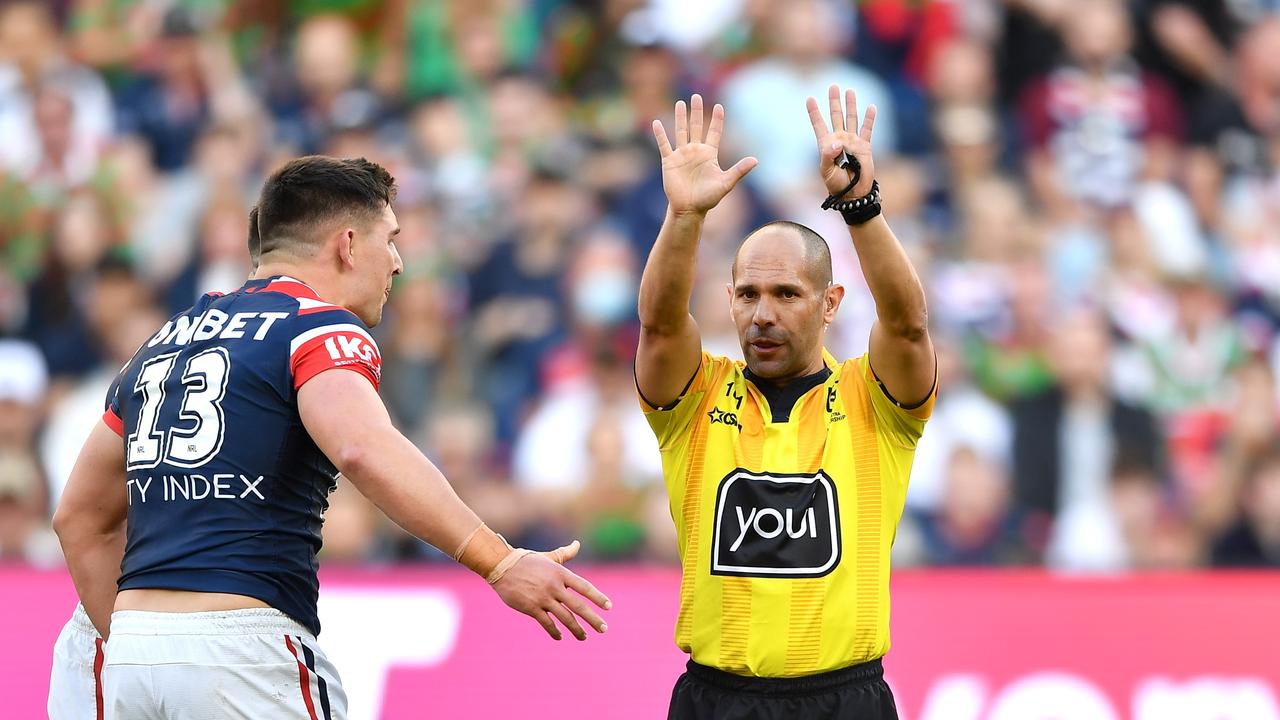
Opinion
Don't miss out on the headlines from Opinion. Followed categories will be added to My News.
It was the great Bob Dylan who sharpened his pencil to write another protest song, this one about the death of boxer Davey Moore in 1963.
“Who Killed Davey Moore?” he asked, and apparently sang, according to reliable ears.
But the times they are a-changin’, someone also once wrote, and as boxing descended into a second-tier sport, rugby league emerged as the big sport in town, at least in this town, and songs were written about it.
It goes without saying that in recent years the game has found a fresh crisis, similar in theme, to Davey Moore’s sad demise.
It might have been Dylan who sat down to write a rugby league protest song about the emerging threat of concussions on the game, or it might have been Bowie, or it might have been made up yesterday, with a nod to Dylan’s original.
So here it is as follows, as best can be recalled, with CliffsNotes for explanation:
Who killed Rugby League?
Why an’ what’s the reason, please?
“Not I,” said the referee.
“Don’t point your finger at me
“I didn’t see them hit him high.
“I never figured he might one day die
“And the crowd would’ve booed, you’d see,
“Sayin’ that’s not the way it used to be.
“It’s too bad he had to go,
“But there was a pressure on me too, you know.
“It wasn’t me that hit him high.
“No, you can’t blame me, you’ll find.”

They howled from everywhere when Ashley Klein drew a line on dangerous tackles and sent several to the sin bin for high tackles some weeks back in the Roosters-Rabbitohs match, when reality is referees are more tolerant nowadays than ever.
They achieve it mostly by attempting to “manage” the game instead of “officiating” it, as should happen. A bad refereeing performance, it now goes, is when a referee blows too many penalties overall, or too many against one team.
Forget whether they were justified or not.
Coaches are aware and coach their players to push the referee, knowing there will come a time when the official feels the outside pressure and puts his whistle in his pocket to avoid criticism for spoiling a “good game”.
Who killed Rugby League?
Why an’ what’s the reason, please?
“Not us,” said the angry crowd.
Whose voices filled the stadium loud.
“It’s too bad his brain wasn’t right,
“We just wish they’d still let them fight.
“We also wish the critics would stop
“They’re killing the game, making it soft.
“It wasn’t us that hit him high.
“No, you can’t blame us, you’ll find.”
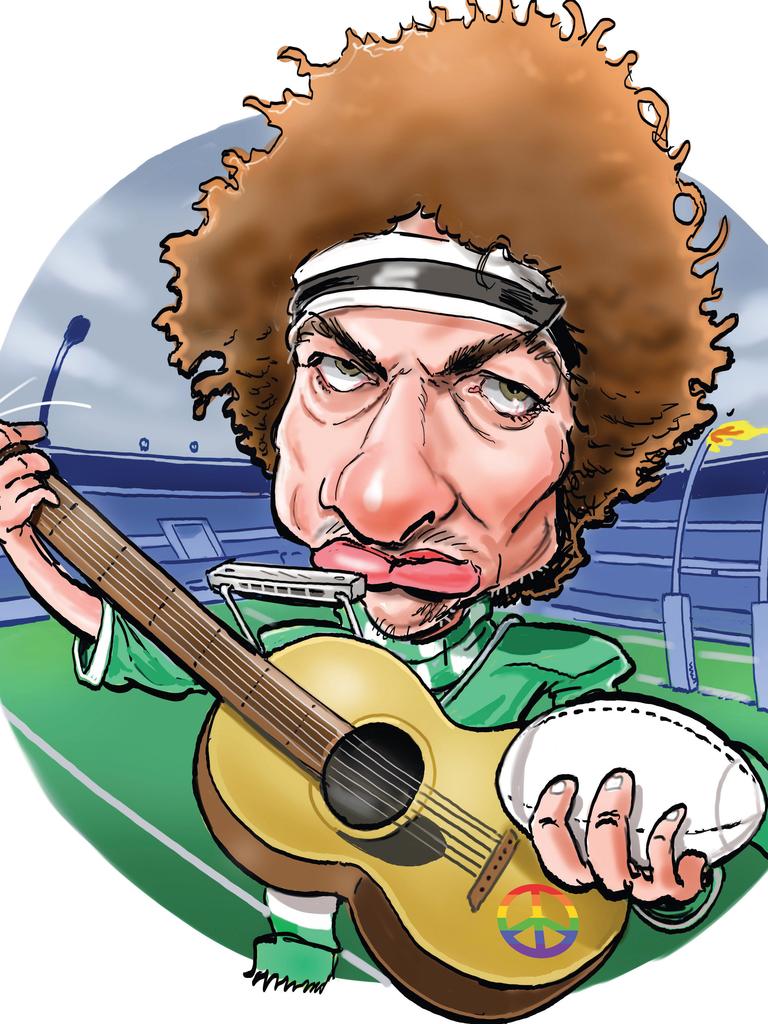
Rugby league has never been tougher but its popularity is continually slowed by voices from the crowd, threatening to vote with their feet and walk away because the game is “getting soft”.
Head high tackles have never been part of the game, for instance, yet truth is there is a greater tolerance for head high tackles now more than ever with the change in tackling styles and judiciary.
Yet the fans are the first to moan whenever the NRL moves to eradicate dangerous tackling styles.
Who killed Rugby League?
Why an’ what’s the reason, please?
“Not me,” said his burly coach.
“I thought CTE was all a hoax.
“It’s hard to say, it’s hard to tell,
“I didn’t know his brain would swell.
“All this talk makes it feel like a sin,
“When all we want to do is win.
“It wasn’t me that hit him high.
“No, you can’t blame me, you’ll find.”
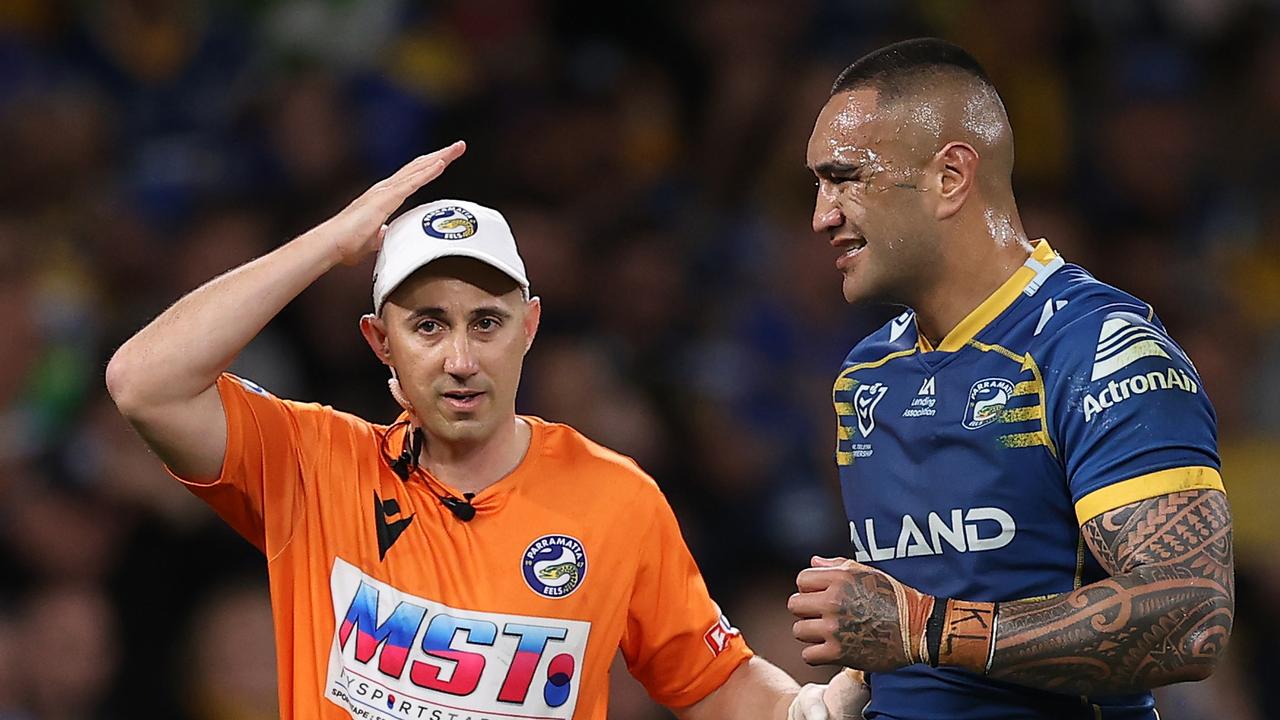
Tackling styles have changed dramatically, which might explain the surge in tackling players getting concussed over those being tackled.
Yet there has been little move from coaches to change as the current style of catch and hold, which sees the tackler upright instead of bent and with his head to the side, as was the old style
It gives the tackler the best chance of winning the tackle and therefore winning the game.
Some coaches also abuse HIA policies, their not-so-quiet secret.
The bitter truth, for too many, is coaches are paid well to win, and that it is often a short term shot, and worth the oversight.
Who killed Rugby League?
Why an’ what’s the reason, please?
“Not me,” said the judiciary man,
With his faded rule book still in his hand.
“It wasn’t me that knocked him cold.
“Those journos’ stories are getting old.
“Head high tackles are here to stay,
“It ain’t my fault his brain wastes away.
“It wasn’t me that hit him high.
“No, you can’t blame me, you’ll find.”
The judiciary and its associate, the Match Review Committee, had a perfect chance to get it right this season when the NRL restructured the judicial process, but they blew it.
It began when the ARL Commission recommended a system that leant more heavily towards small fines than suspensions, providing no true incentive for players to change techniques.
Then the MRC began undercharging them, which actually encouraged many players to continue their destructive ways.
Like training a child, simple rules, stiff penalties. It is the only way.
Who killed Rugby League?
Why an’ what’s the reason, please?
“Not me,” said the old league journo,
Who with each concussion feeds the inferno.
Sayin’, “Concussions ain’t to blame,
“There’s just as much danger in a children’s game.”
Sayin’, “Head high tackles, you might yell,
“But don’t you know, we got papers to sell.
“It wasn’t me that hit him high.
“No, you can’t blame me, you’ll find.”
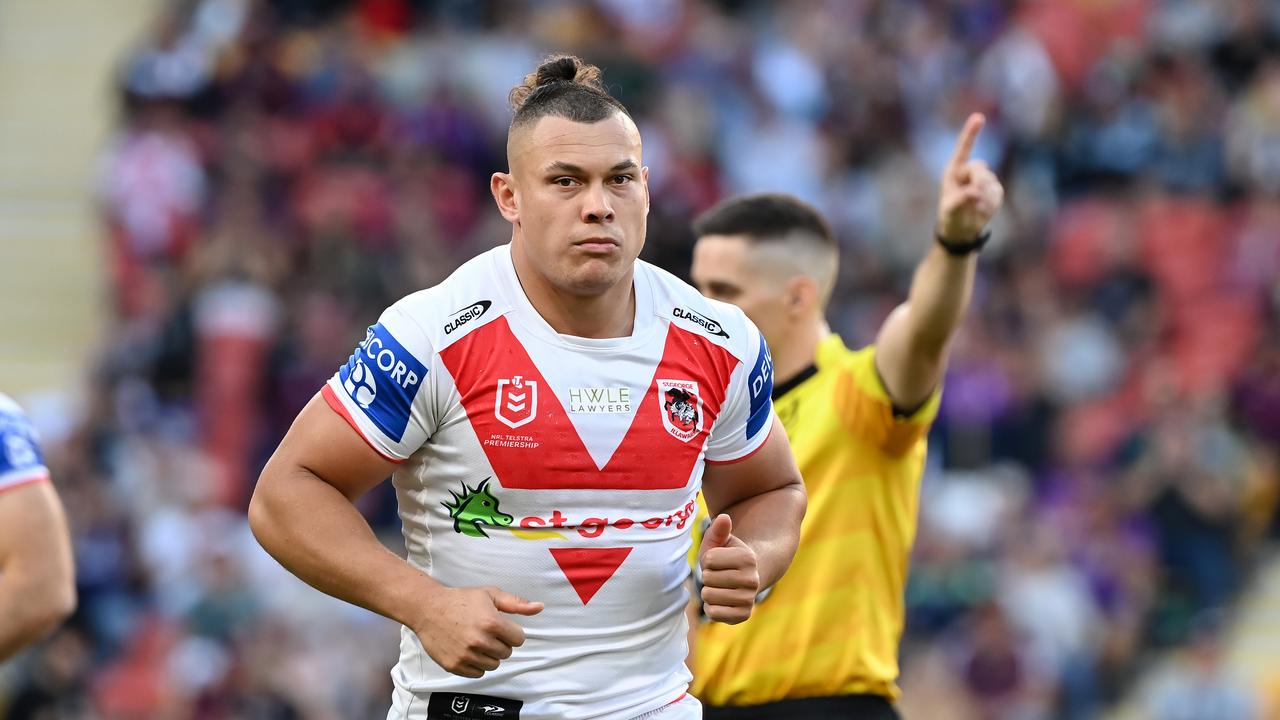
In some ways, the media coverage is the most reckless of all.
Example one: the NRL crackdown on head high tackles in Magic Round last year saw such a reaction in great parts of the media it bordered on hysteria.
Too much, they yelped. You’re making the game soft.
Unfortunately, it has got to the stage where only drastic action can force change. The clubs know this, resist this, and so tip to agreeable league writers who take up the fight for them and the NRL buckles under pressure.
Who killed Rugby League?
Why an’ what’s the reason, please?
“Not me”, says the man whose fist
Laid him low but the judiciary missed.
Who plays the game rough and tough,
So long as it’s not on one of us.
“I hit him, I hit him, yes, it’s true,
“But that’s what you expect me to do.
“Don’t say ‘damage’, don’t say ‘brain’
“You made the rules, so you explain.”
Who killed Rugby League?
Why an’ what’s the reason, please?
Throughout this season senior players such as Dale Finucane and Wade Graham have spoken out about the soft penalties for some high shots, surprised at the lack of protection for players, saying the game is not strong enough on deterrents.
At the same time stories of old men, suffering dementia from old games, are growing.
Most agree the solution starts somewhere, but where?
Maybe the answer is in all of us.
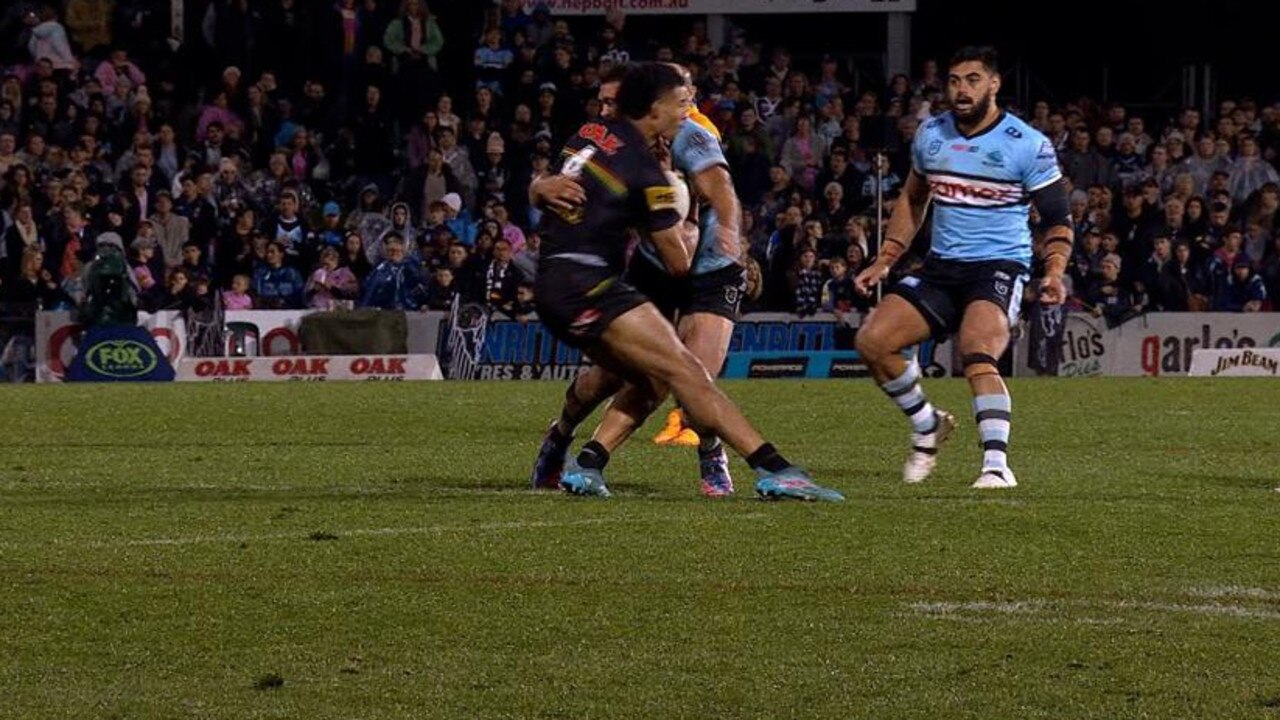
SHORT SHOT
Australian rules football’s long-held claims that it is the Indigenous game are in ashes this week.
It’s a claim the AFL has used for many years to promote itself, and believed by fans who are generally eager to climb on-board without inspection
While the NRL’s run has been far from smooth, efforts such as rugby league naming the first Indigenous national captain in any sport, Arthur Beetson, were often dismissed by the “Australian game” who claimed to treat Indigenous Australians the best.
This week the AFL’s response to the Hawthorn racism scandal varied from the alarmed and the hurt to the predictable and embarrassing.
AFL general manager of inclusion and social policy, Tanya Hosch, tried to mitigate the AFL’s culpability by the generic claim that “the country has a problem”.
“I don’t think we’re immune to that,” she said.
Good heavens, no wonder there’s a problem.
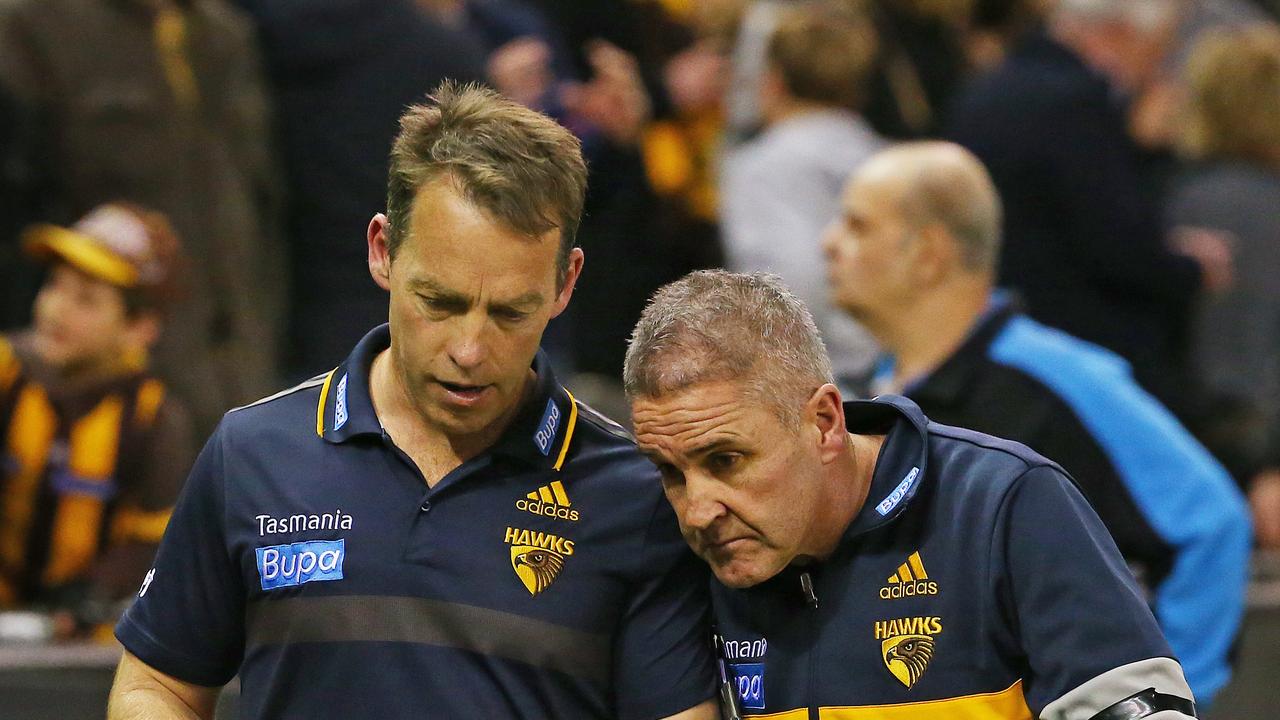
Where else in the country are Indigenous women allegedly told to have abortions, to protect their partner’s careers, Ms Hosch did not disclose.
It could be better argued this kind of blind ignorance has allowed the mistreatment of Indigenous athletes to fester to the point it has.
As was discussed on AFL360 this week, the AFL’s supposed proud record with Indigenous athletes seemed to work, really, when it was on white man’s terms.
“The system that’s really not built for them,” said prominent former Indigenous player Eddie Betts.
It’s a system that sees players recruited from their community and put through private schools.
When Betts followed up with a request that “every football club should do a review like this”, it gave a glimpse of the true feelings from within the game.
More Coverage
Originally published as NRL 2022: Paul Kent on referee howlers, high tackle crackdown and slow death of rugby league




